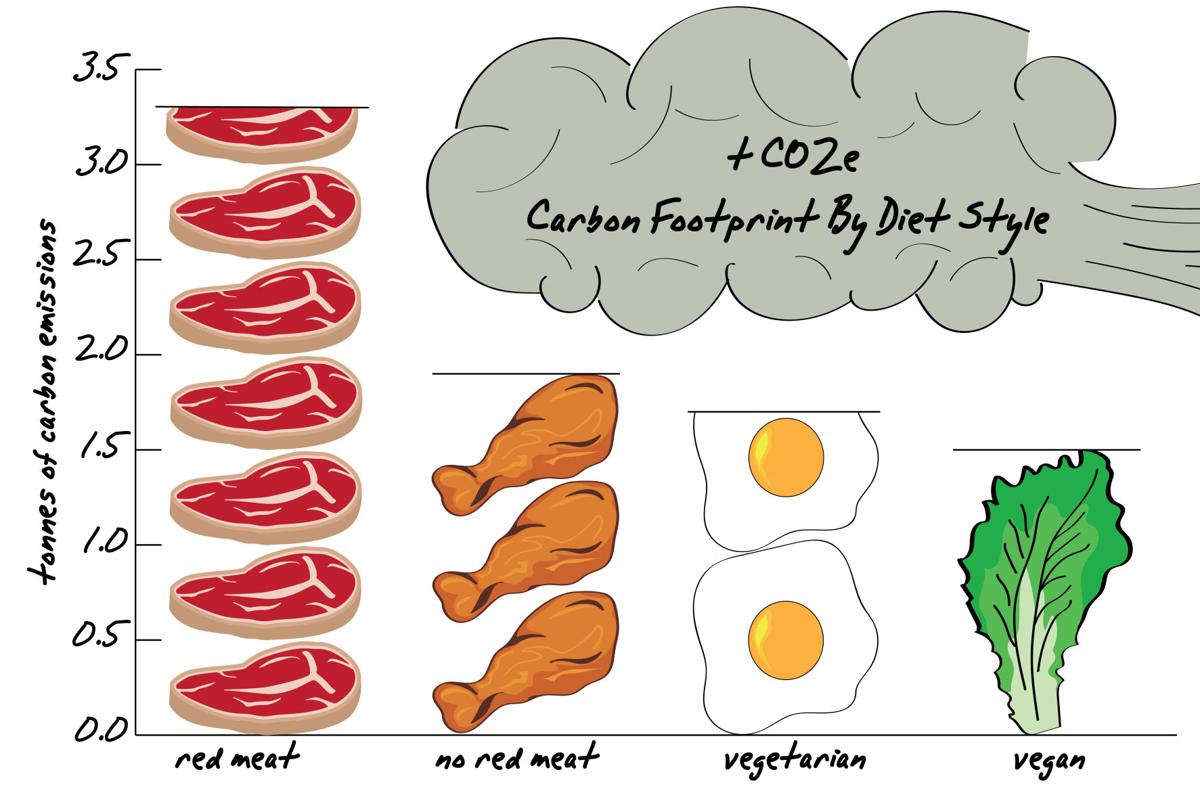OPINION: Let’s get to the meat of climate change
March 8, 2019

When we think of the causes of climate change, we tend to focus on transportation as the main culprit. While gas emissions are a contributor, there’s a larger cause right under our noses: food.
I have always had a great admiration for nature. Growing up in Cochabamba, Bolivia, a city surrounded by mountains, it was hard to avoid. I have countless memories of family trips playing in rivers and camping in forests. I remember trying to be as “green” as possible to conserve the places I loved. I avoided plastic bags at the supermarket, used my bike to get around the city and even timed my showers. I believed I was doing my part.
But, unaware of the consequences, I was eating meat almost every day—until I found out making a single hamburger uses around 660 gallons of water, according to the Environmental Protection Agency. There is a long process behind meat production, including excessive use of water, electricity and food. In the U.S., just 5 percent of freshwater is for domestic use, while 55 percent is used for animal agriculture.
According to the EPA’s website, the transportation sector makes up 14 percent of greenhouse gas emissions. Food production makes up 24 percent; other studies show even higher numbers, as reported by the scientific journal Animal Feed Science and Technology. As upsetting as this may be, it also means we can have a tremendous impact by simply tweaking what we eat.
To put things into perspective, if all farmland were used to produce food directly for humans instead of using 45 percent for livestock or biofuel, we could feed an additional 3 billion people, according to a July 18, 2014, Vox article. The Food and Agriculture Organization of the United Nations reported that as of 2017, 821 million people are suffering from chronic undernourishment. Those people would not go hungry if resources were distributed effectively and without waste. By reducing our beef consumption, we could not only reduce the greenhouse effect by a substantial amount, but we could feed the entire population in the process.
Since learning this information, I have become a vegetarian, but drastic diet changes are not necessary. Small steps like cutting out red meat make a difference. The good news is that alternatives such as soy meat provide the same type of protein as animal meat, and they taste just as good. What we eat is a choice we constantly face, and that choice can help our planet and population.







